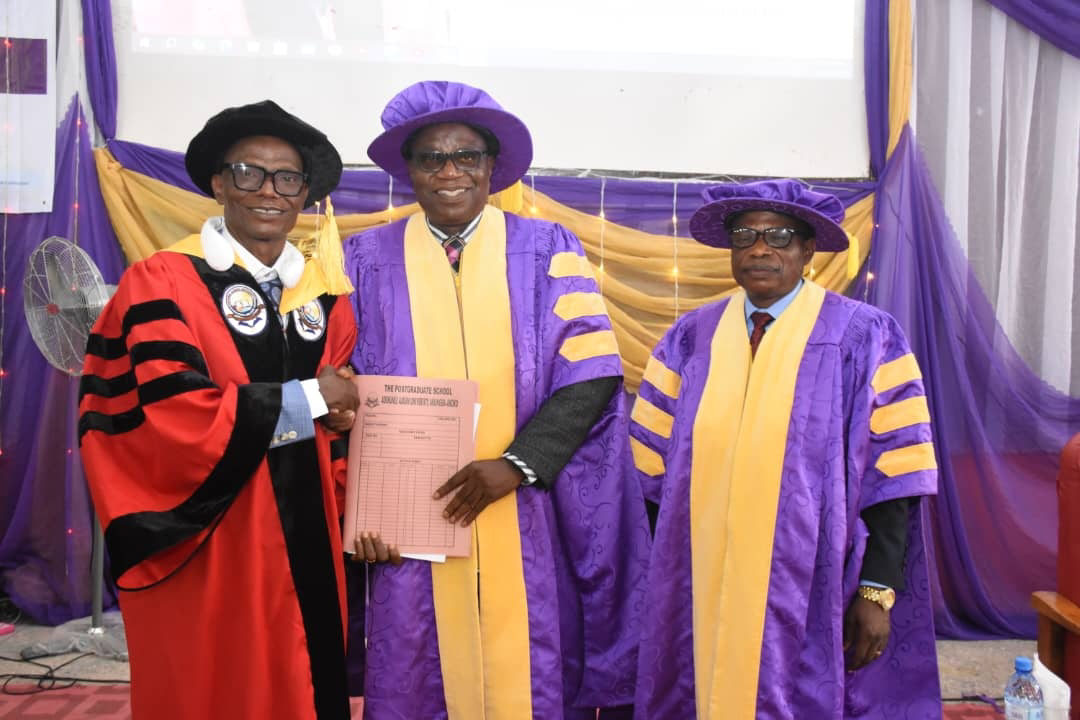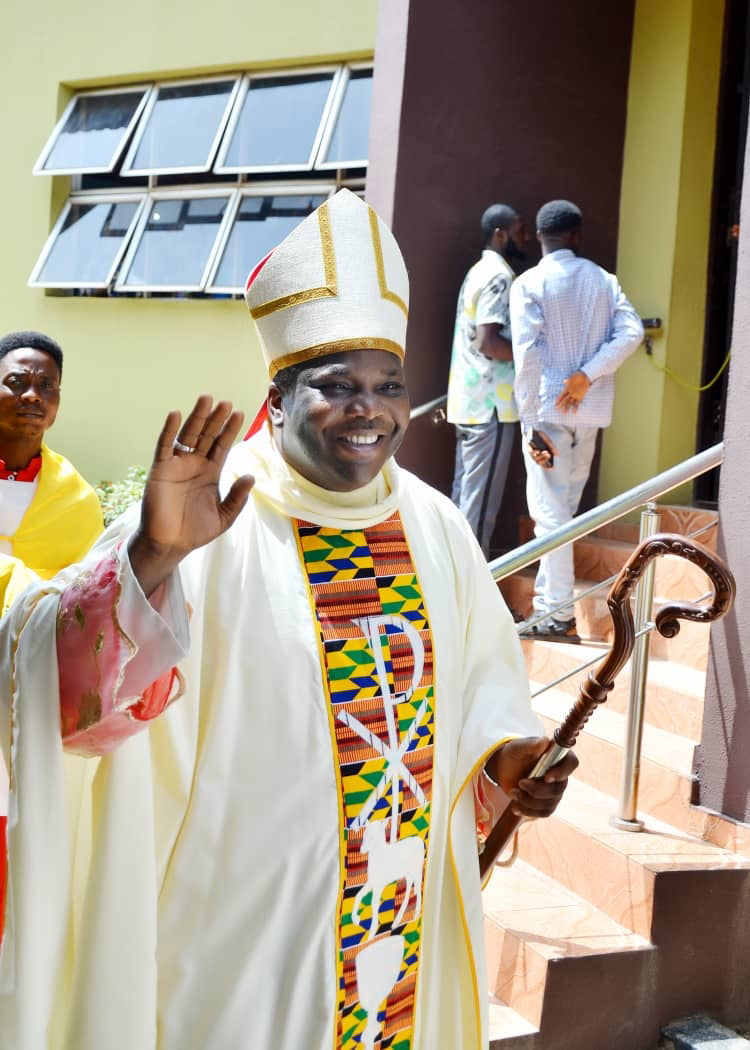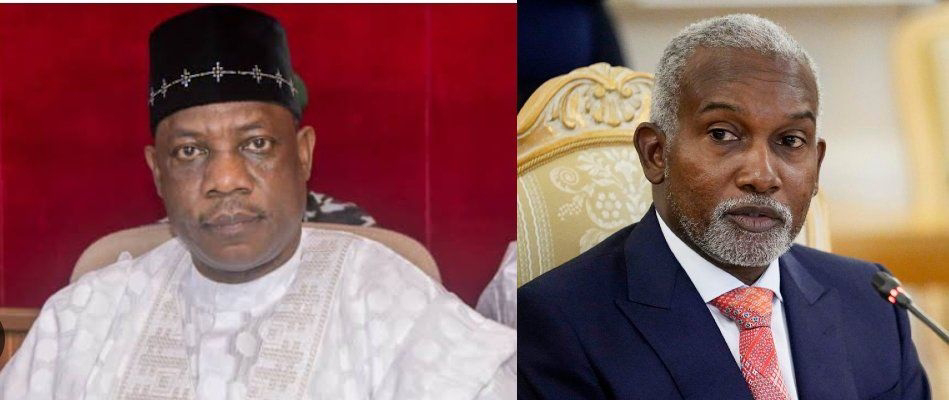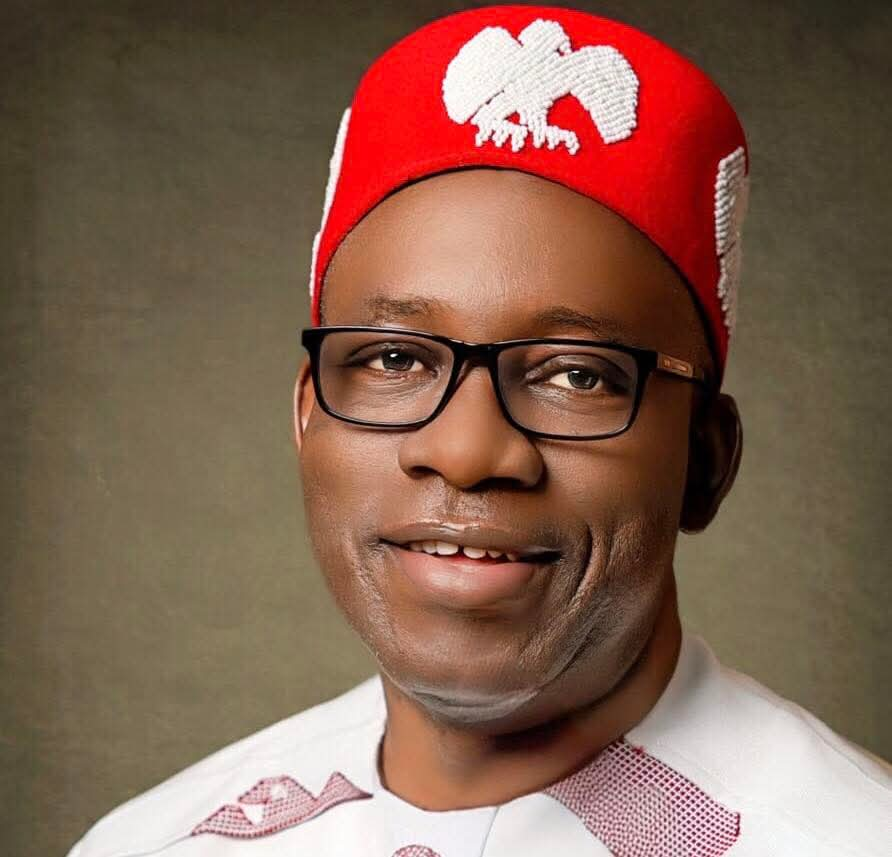Prof. Festus Oluwole Alabi of the Department of Educational Management at Adekunle Ajasin University, Akungba-Akoko, has called for a rethinking of the roles played by individuals and institutions in the education sector.
He emphasized the need for “green leadership” to address the challenges facing the system and to promote a sustainable, ethically guided approach to educational management.
Speaking on Tuesday, April 15, 2025, during the 37th Inaugural Lecture of the University, Prof. Alabi delivered a lecture titled “The Man and the Plant in the School System: Predator or Green Influencer?”
He stressed the importance of moving away from predatory practices and adopting a more responsible, green-influencer mindset within the education system.
“The goal for all those involved in education is to help fulfill the ultimate purpose of schooling by rejecting harmful tendencies and instead embracing the role of green influencers,” Prof. Alabi remarked.
“The education system is a gateway to a better world, and everyone must support the green influencers in making it effective.”
He went on to highlight the intrinsic connection between humans and plants, calling the school system not only a place for learning but a foundational element of civilization, culture, and sustainability.
Urging a return to integrity and spiritual understanding, Prof. Alabi described the school as a reflection of the Earth itself, a space that should be cherished and protected to prevent decay.
He argued that educational institutions should be seen as microcosms of the Earth, requiring careful stewardship.
The concept of “Green Influencers” was defined by Prof. Alabi as individuals and institutions dedicated to sustainability, ethical leadership, and value-driven educational management.
He explained that these influencers view the Earth as a precious resource—similar to a Garden of Eden—and are marked by traits such as empathy, competence, innovation, and a deep commitment to both human and environmental well-being.
In contrast, Prof. Alabi identified “predators” as those who exploit the weaknesses within the education system for personal gain.
These include corrupt officials, abusive teachers, manipulative students, and institutions involved in financial exploitation, accreditation fraud, and other unethical practices.
He expressed concern over the systemic issues affecting Nigerian education, particularly corruption, tribalism, and inadequate funding. Prof. Alabi noted that while the government often neglects to provide sufficient resources for institutions, it simultaneously imposes external bodies like the NUC and WAEC to monitor and evaluate programs without offering the necessary support.
To address these issues, Prof. Alabi recommended that political leaders with a strong understanding of environmental and ecological principles should take charge of the education sector.
He also suggested that all school leaders, from primary to tertiary levels, should possess at least a Diploma in Educational Management to ensure effective governance.
Furthermore, he urged the government to refrain from manipulating school planning and to allocate adequate funding for education, ensuring fairness and equity in resource distribution.
Prof. Alabi called for a more accountable and transparent system, with corrective mechanisms in place to hold school management, staff, and students responsible for their actions.
Lastly, he recommended that school management implement various types of maintenance, including regular, preventive, and emergency maintenance, to ensure the continuity and progress of the education system.
He also emphasized the importance of collaboration within school communities to generate the resources needed for these efforts.
In his closing remarks, Prof. Olugbenga Ige, Vice Chancellor of the University, commended Prof. Alabi for his dedication to academic excellence and his significant contributions to the development of education, both within and outside the University.






